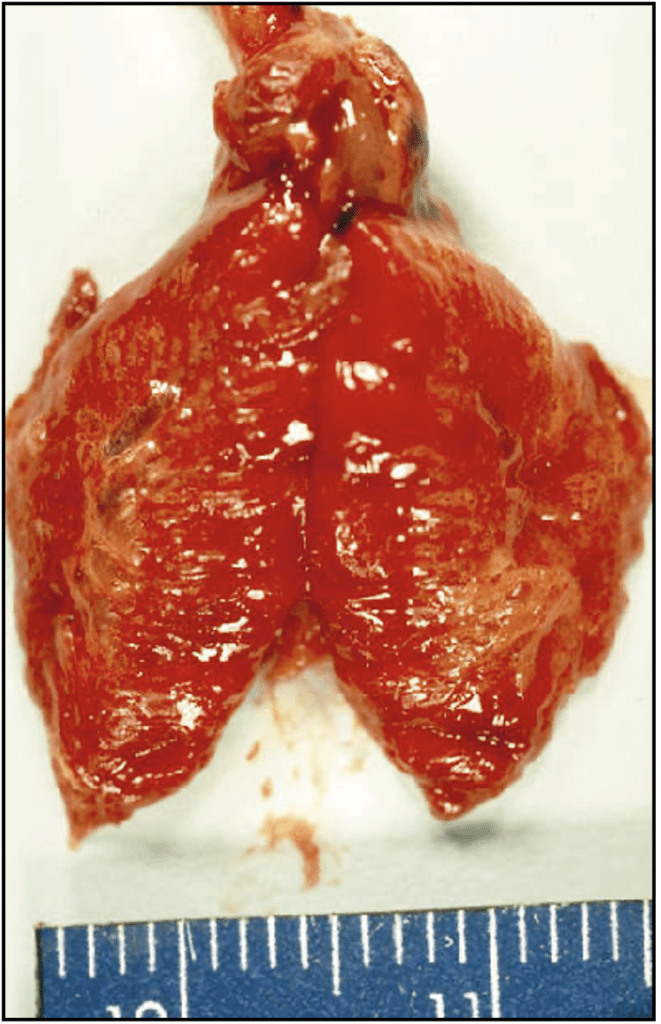Polytetrafluoroethylene Toxicosis (TeflonTM Toxicity)
Martin Ficken, DVM, PhD, ACPV
The non-stick coating polytetrafluoroethylene (TeflonTM) on cookware, light bulbs, and ovens releases fluorinated gases upon overheating. This is particularly important with pet birds, but can be observed in poultry with polytetrafluoroethylene-coated heat lamp bulbs. These gases are highly toxic to the epithelium of the deep airways and endothelium of the blood capillaries. Birds exposed to these toxic fumes may show difficult breathing, wheezing, gasping, weakness, depression, or anxious behavior but often birds are found dead in their cages. A diagnosis is usually made combining clinical history with birds found acutely dead or in severe respiratory distress. Necropsy examination shows severe lung edema and hemorrhage (Figure 1).
Differential diagnoses for this disease include other respiratory tract irritants including aerosol sprays, smoke, carbon monoxide, natural gas, ammonia, and burned foods and cooking oils.

Figure 1 – Severe diffuse pulmonary hemorrhage and edema in a cockatiel exposed to fumes from overheated polytetrafluoroethylene. File photographs courtesy of Dr. H. John Barnes, College of Veterinary Medicine, North Carolina State University.
Reference
- Fulton RM. Toxins and Poisons (Polytetrafluoroethylene [PTFE]) in Diseases of Poultry, 13th edition, Wiley-Blackwell, ed. Swayne, DE et al. p, 1302, 2013.